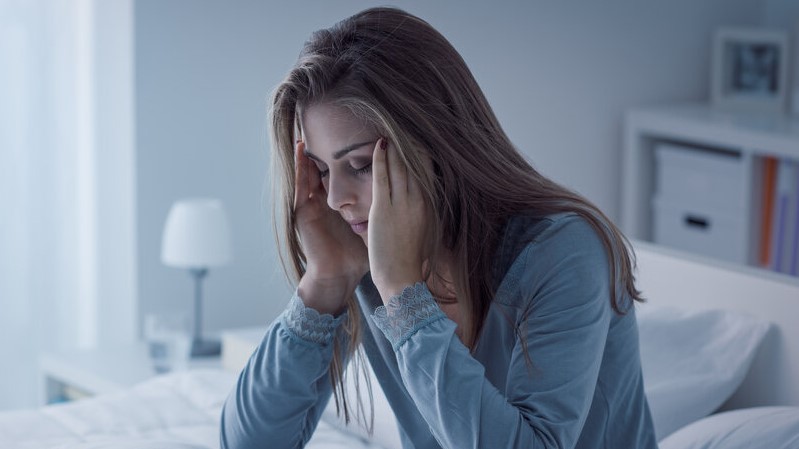1. Stress and Anxiety
The Impact of Stress on Sleep
Stress is one of the most common causes of sleep disturbances. When the mind is preoccupied with worries about work, relationships, or other aspects of life, it can be difficult to relax and fall asleep. Stress triggers the release of cortisol, a hormone that increases alertness and can disrupt the natural sleep cycle.
Managing Stress for Better Sleep
To mitigate the effects of stress on sleep, it is important to incorporate stress-reducing activities into daily routines. Practices such as mindfulness meditation, deep breathing exercises, and regular physical activity can help lower stress levels. Additionally, establishing a consistent bedtime routine can signal to the body that it is time to wind down, making it easier to fall asleep.
2. Poor Sleep Environment
The Role of the Sleep Environment
A conducive sleep environment is essential for restful sleep. Factors such as noise, light, and temperature can significantly impact the quality of sleep. An uncomfortable mattress or pillow can also lead to discomfort and frequent waking throughout the night.
Creating an Optimal Sleep Environment
To create a sleep-friendly environment, it is important to keep the bedroom cool, dark, and quiet. Investing in blackout curtains, a white noise machine, and a comfortable mattress can make a significant difference. Removing electronic devices that emit blue light, such as smartphones and tablets, from the bedroom can also promote better sleep.
3. Irregular Sleep Schedule
Consequences of an Irregular Sleep Schedule
An inconsistent sleep schedule can confuse the body’s internal clock, making it difficult to fall asleep and wake up at the desired times. This is particularly common among shift workers, students, and individuals who travel frequently across time zones.
Establishing a Consistent Sleep Routine
To regulate the sleep-wake cycle, it is beneficial to go to bed and wake up at the same times every day, even on weekends. This consistency helps reinforce the body’s natural circadian rhythms. If changing a sleep schedule, it is best to do so gradually, adjusting by 15-30 minutes each day to allow the body to adapt.
4. Diet and Caffeine Consumption
How Diet Affects Sleep
What we eat and drink can have a profound effect on sleep quality. Heavy or spicy meals before bedtime can cause discomfort and indigestion, making it difficult to fall asleep. Caffeine, found in coffee, tea, and many sodas, is a stimulant that can interfere with the ability to fall asleep, even hours after consumption.
Making Dietary Adjustments for Better Sleep
To improve sleep, it is advisable to avoid large meals and caffeine close to bedtime. Opting for light snacks, such as a banana or a small bowl of oatmeal, can be beneficial. Drinking herbal teas like chamomile or valerian root, known for their calming effects, can also promote better sleep.
5. Lack of Physical Activity
The Link Between Exercise and Sleep
Regular physical activity is known to enhance sleep quality. Exercise helps reduce stress and anxiety, which are major sleep disruptors, and it promotes a deeper, more restful sleep. However, the timing of exercise can also play a role.
Incorporating Exercise into Daily Routine
Engaging in at least 30 minutes of moderate aerobic activity on most days can improve sleep. It is best to complete workouts earlier in the day, as exercising too close to bedtime can have a stimulating effect and make it harder to fall asleep. Activities such as yoga and stretching in the evening can help relax the body and prepare it for sleep.
6. Medical Conditions and Medications
Health Issues That Affect Sleep
Various medical conditions, including sleep apnea, restless legs syndrome, and chronic pain, can interfere with sleep. Sleep apnea, for example, causes breathing interruptions during sleep, leading to frequent awakenings. Certain medications, particularly those used to treat conditions like asthma, hypertension, and depression, can also have side effects that disrupt sleep.
Seeking Medical Advice
If sleep problems persist despite lifestyle changes, it is important to consult a healthcare provider. Treating underlying medical conditions and adjusting medications can significantly improve sleep quality. In some cases, a referral to a sleep specialist may be necessary for further evaluation and treatment.
7. Mental Health Disorders
The Connection Between Mental Health and Sleep
Mental health disorders, such as depression and anxiety, are closely linked to sleep problems. Insomnia is a common symptom of depression, while anxiety can lead to racing thoughts that prevent falling asleep. Conversely, poor sleep can exacerbate symptoms of mental health disorders, creating a vicious cycle.
Addressing Mental Health to Improve Sleep
Effective management of mental health disorders often leads to better sleep. Cognitive-behavioral therapy (CBT) is an evidence-based treatment that can help address insomnia and the underlying thoughts and behaviors that contribute to sleep problems. Medications, prescribed by a healthcare provider, may also be necessary for some individuals.
Conclusion
Understanding the common difficulty sleeping? 7 common causes of sleep problems is the first step towards addressing them. By identifying and mitigating factors such as stress, poor sleep environment, irregular sleep schedules, diet, lack of physical activity, medical conditions, and mental health disorders, individuals can significantly improve their sleep quality. Establishing healthy sleep habits and seeking professional help when needed can lead to better rest and overall well-being. Prioritizing sleep is not just about feeling more rested; it’s a crucial component of maintaining physical health, mental clarity, and emotional balance.
